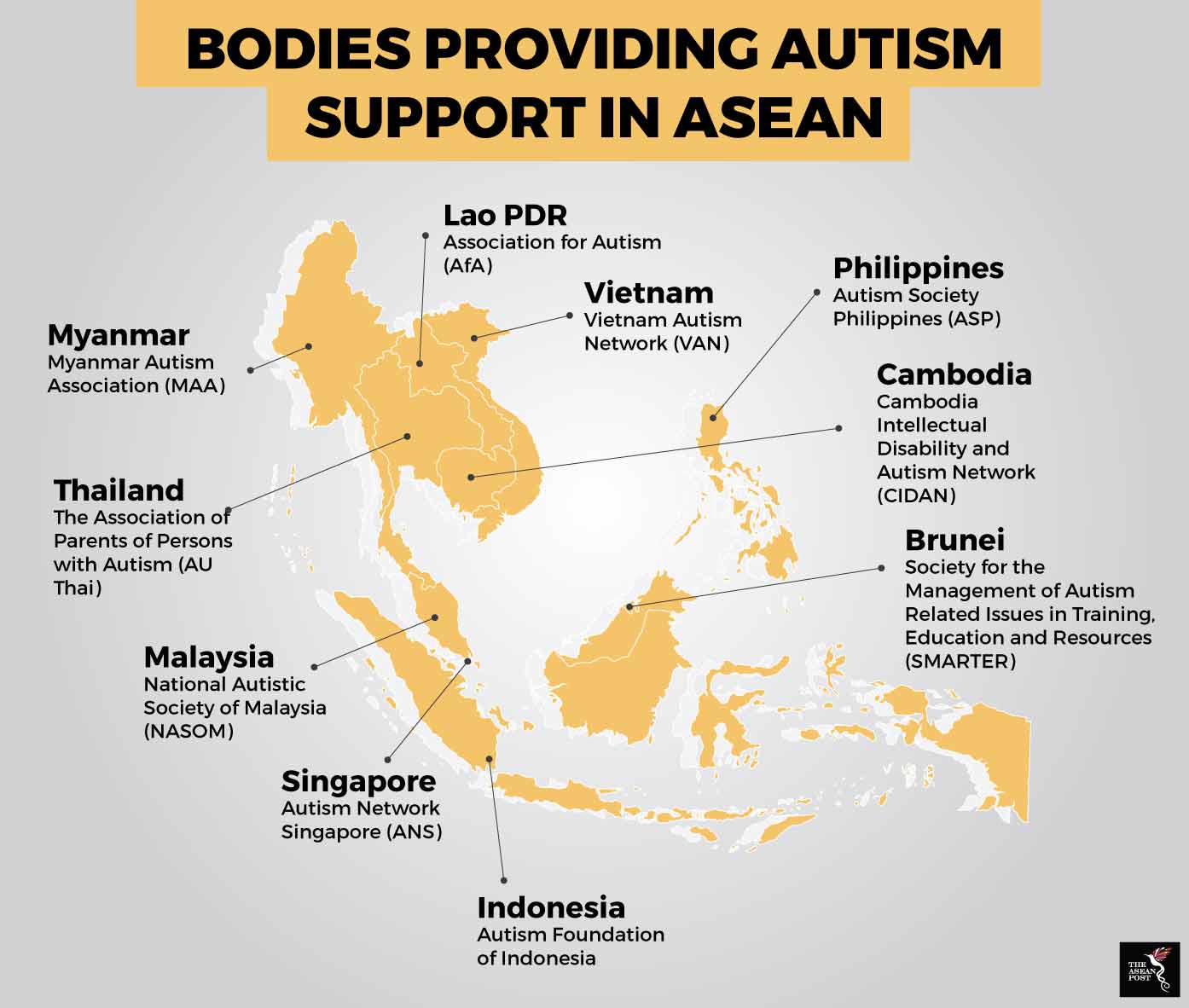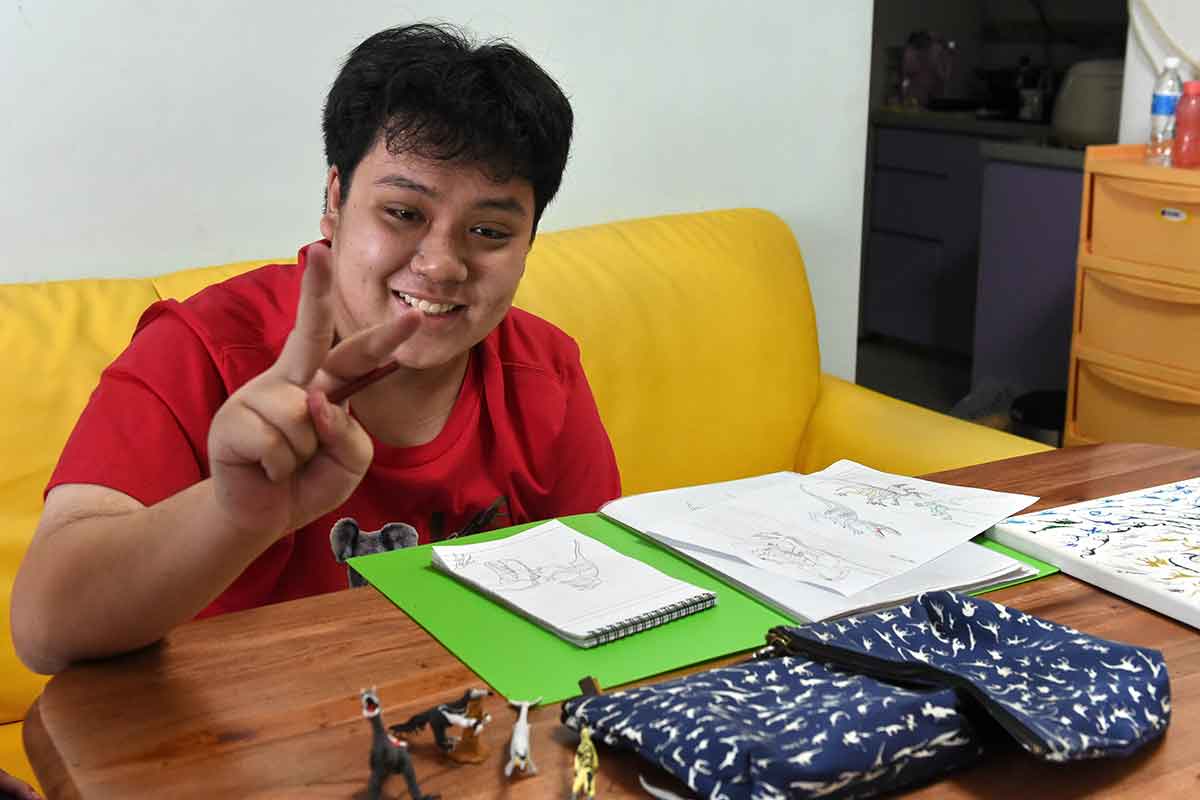Malaysia’s Sunway Putra Mall became the first “Autism Friendly Mall” in the country after unveiling a slew of features catering to autistic individuals last month, providing those with autism with more opportunities to engage with and participate in their communities.
Making Tuesdays their “Autism Friendly Shopping Day”, families with autistic individuals can now enjoy dimmed or lowered lights and music at the common area and participating outlets, reserved parking, shopping assistance, discounted rates and priority queues at payment counters.
This is in addition to a Calm Room which provides a calming environment with dimmed lights and tools such as sensory toys, weighted blankets, essential oils, bean bags and a sensory wall – all of which has helped improve the inadequate access to services and support that people with autism currently face.
What is autism?
According to the National Autism Society of Malaysia, autism is a complex developmental disability that typically appears during the first three years of life due to a neurological disorder that affects the functioning of the brain in the areas of social interaction and communication skills.
The World Health Organisation (WHO) estimates that one in 160 children have autism, which begins in childhood and tends to persist into adolescence and adulthood. Children and adults with autism have difficulties in verbal and non-verbal communication, social interactions and leisure or play activities – which makes it harder to relate to the outside world. Although a cure is yet to be found, behavioural treatment and parent skills training programmes can reduce difficulties in communication and social behaviour.
According to the United States’ (US) National Institutes of Health, autism has a tendency to run in families but the inheritance pattern is usually unknown. Although it is uncertain what causes autism, possible causes include advanced parental age at time of conception, prenatal exposure to air pollution, maternal obesity or diabetes, lack of prenatal nutrition and other causes.
Autism in ASEAN
Due to difficulties in collecting information and a lack of awareness among many rural communities, it is hard to ascertain the exact number of individuals with autism in ASEAN member states. In Malaysia, there are thought to be more than 300,000 autistic individuals and the number is reported to be 50,000 in Singapore. An estimated 638,000 individuals have autism in Indonesia while in the Philippines, estimated cases of autism rose from 500,000 in 2008 to one million in 2014.
While numbers are on the rise across ASEAN, this is likely due to more awareness and testing rather than a greater prevalence of autism. Admittedly, the number of individuals living with autism could be much higher in ASEAN – especially in rural areas where it may not be reported or misinformation about the condition still exists.
On a regional-level, awareness about autism has risen over the years – especially with mass media playing a key role in disseminating information and breaking long-held stereotypes. Various initiatives have been implemented and many organisations have been formed across Southeast Asia to give the condition attention and increase support for autism programmes.

Source: Asia-Pacific Development Center on Disability
Organisations and initiatives
Created in 2010, the ASEAN Autism Network comprises of autism family support organisations from ASEAN member states and is a platform to cooperate and unite in developing non-discriminatory programmes to support persons living with autism and their families. It also organises the ASEAN Autism Games, which was held for the fourth time last year and brought together 220 autistic children from across the region to compete in swimming and athletics over two days in Jakarta.
In 2017, the 10 ASEAN countries signed the Thimphu Declaration which focuses on integrating the needs of individuals with autism and their families into national health and socioeconomic development plans.
Last November, ASEAN bestowed the inaugural ASEAN Prize to Ms. Erlinda Uy Koe, the Chair Emeritus of Autism Society Philippines (ASP), during the opening ceremony of the 33rd ASEAN Summit in Singapore. Under her leadership, the ASP with 96 chapters nation-wide, has become one of the most vibrant disability organisations in the Philippines. The ASEAN Prize, administered by the ASEAN Secretariat, aims to recognise inspiring achievements and contributions of an individual or organisation that fosters the ASEAN identity, promotes the ASEAN spirit, and champions the ASEAN way.
ASEAN is also in the midst of the ASEAN Autism Mapping Project which aims to map people with autism in ASEAN and develop country profiles which will include an accurate data source on the prevalence of autism. It will also provide a mapping of organisations of and for persons with autism to facilitate exchanges and cooperation between these organisations and a directory of support services and interventions – which may include the newest trends and innovations available to persons with autism in Southeast Asia.
Ultimately, all of ASEAN’s autism stakeholders have a vital role to play in developing laws and policies to promote and protect the rights and empowerment of persons with autism.
Related articles:
Governments must stand up for health
